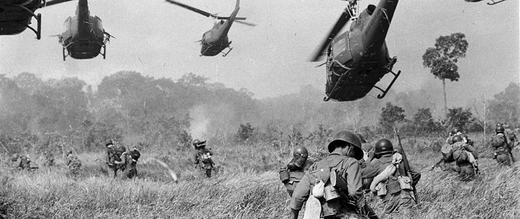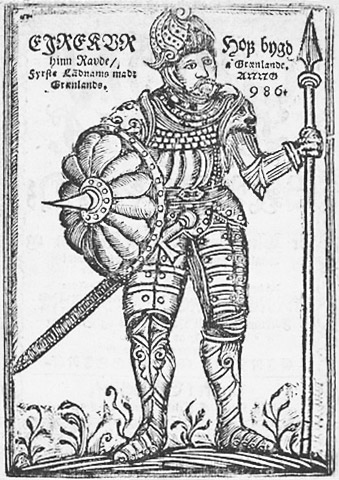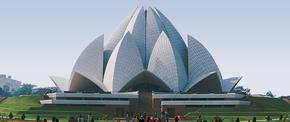The views expressed in our content reflect individual perspectives and do not represent the authoritative views of the Baha'i Faith.
There are two things a person should never be angry at, what they can help, and what they cannot. – Plato
Anger is a brief madness. – Horace
The best vaccine against anger is to watch others in its throes. – Proust
There is no baser state than that of the ferocious type. There is no greater degradation for man than this. There is no worse debasement than the battlefield. It is the cause of the wrath of God. It is the cause of the destruction of the foundations of man. – Abdu’l-Baha, Star of the West, Volume 9, p. 250.
My middle name is Eric. That’s because I’m a descendant of Eric the Red, the first Viking to settle in Greenland, and of his son Leif Ericson, the first European to land in North America.
My Norwegian grandfather Olaf told me stories about my ancestors Eric the Red and his son Leif as soon as I could understand them. As a child, I grew up hearing about these intrepid explorers, and wondering if I had a little bit of them in me.
Eventually I learned that Eric the Red established the first European colony in Greenland in 982 A.D., five hundred years before Cristobol Colombo sailed for the West Indies from Spain. A fierce Viking warrior, Eric established a colony of 5000 Vikings near the southern tip of Greenland. His son Leif—one of the first Viking chieftains to convert to Christianity–sailed to a place he called Vinland (now Newfoundland, in modern Canada), and settled there in peaceful coexistence with the natives.
As a child, I could relate to Leif, but I had major problems with his dad.
Eric the Red refused to take on his son’s new Faith, and remained a follower of the indigenous Viking religion, which worshipped Odin and believed the only acceptable death came during battle. From that brutal, bloody tradition, responsible for the slaughter of hundreds of thousands of people and the colonization and subjugation of many more, comes the modern word berserk. A berserker, in Viking parlance, fought in war with wild rage and abandon, perhaps after ingesting hallucinogenic plants or great quantities of alcohol. Berserkers often led the conquering Viking shock troops, looting, plundering and killing indiscriminately. Called “heathen devils” by the Europeans they encountered, the Viking berserkers struck fear into the hearts of their foes.
In Vietnam, I saw this kind of wild, uncontrolled savagery take hold of many combatants on both sides of the war. Their humanity subdued or masked, they became wildly enraged homicidal maniacs, in the most literal sense of the term. That murderous and uncontrolled anger, says the psychiatrist and author Jonathan Shay, ultimately comes back to haunt the soldier:
If a soldier survives the berserk state, it imparts emotional deadness and vulnerability to explosive rage to his psychology and permanent hyperarousal to his physiology — hallmarks of post-traumatic stress disorder in combat veterans. My clinical experience with Vietnam combat veterans prompts me to place the berserk state at the heart of their most severe psychological and psychophysiological injuries. – Achilles in Vietnam, p. 98.
Strangely, this kind of character—one who goes berserk, loses all semblance of humanity and mercy, and transforms into an inhumane monster—has become a staple of films, television shows and video games. The popularity and ubiquity of the berserker tells us that some people relate to that rampant, unchecked anger, and get a vicarious, cathartic thrill from seeing it expressed.
The Baha’i teachings have a unique view of these inherent and bloodthirsty drives in human beings:
In this material world, man is subject to the force of instinctual desires, of which sin is the inevitable consequence, for these desires are not bound by the laws of justice and righteousness. The body of man is a prisoner of nature and will act in accordance with whatsoever nature dictates. It follows that sins—such as wrathfulness, envy, contentiousness, greed, avarice, ignorance, rancour, corruption, pride, and cruelty—must exist in the material world. All these bestial attributes exist in the nature of man.
…All sin is prompted by the dictates of nature. These dictates of nature, which are among the hallmarks of corporeal existence, are not sins with respect to the animal but are sins with regard to man. The animal is the source of imperfections such as anger, lust, envy, greed, cruelty and pride. All these blameworthy qualities are found in the nature of the animal, and do not constitute sins with regard to the animal, whereas they are sins with regard to man. – Abdu’l-Baha, Some Answered Questions, newly revised edition, pp. 132-134.
For Baha’is, spiritual growth and progress mean moving away from our lower nature and aspiring to a higher state of being and consciousness. That means understanding our emotions, dealing with our inner anger and rage, and finding ways to transmute it into a constructive and positive force for good. It also means confronting and trying to overcome our lower nature by transcending the physical and aspiring to the spiritual.


















Comments
Sign in or create an account
Continue with Facebookor